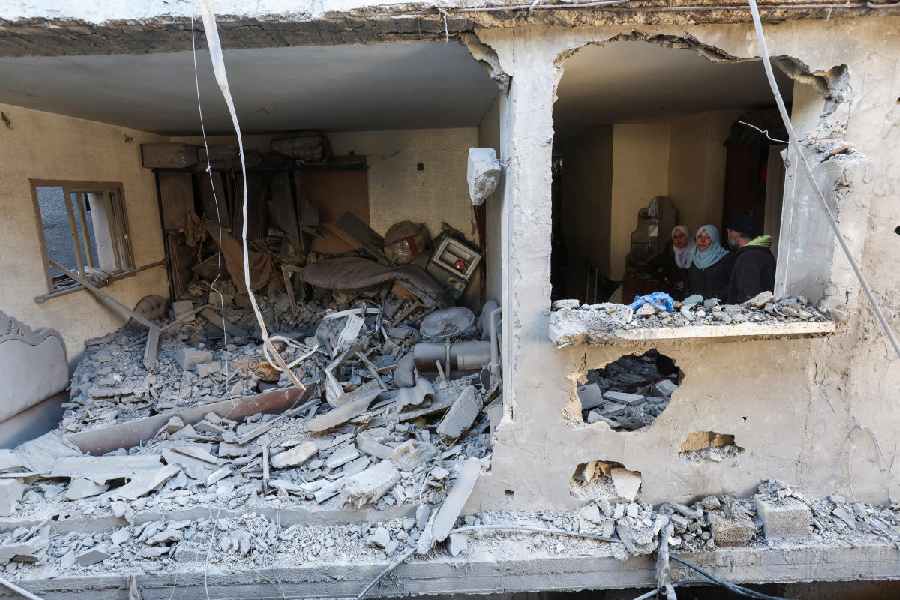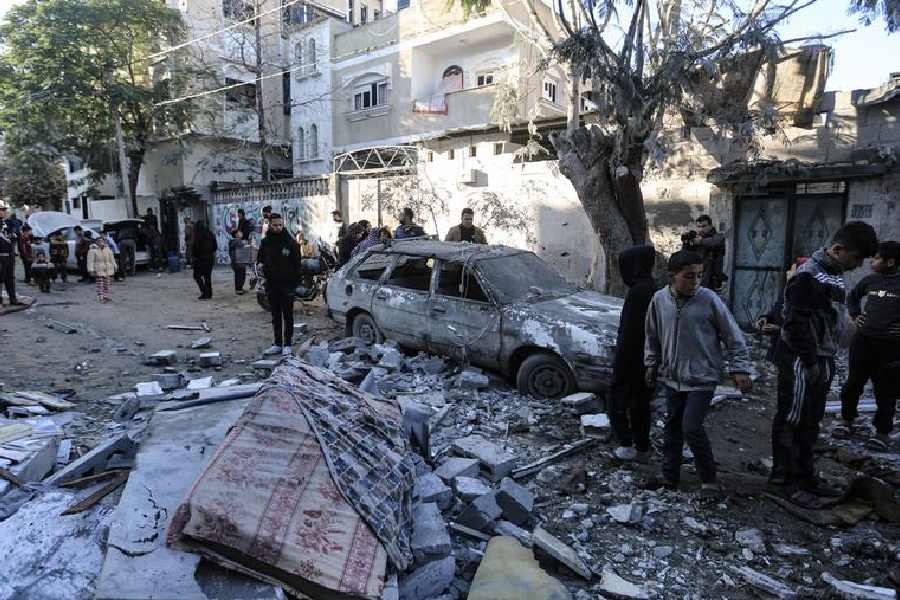Israeli forces bombed areas in the southern border city of Rafah where more than half of Gaza's population is sheltering on Thursday, a day after Prime Minister Benjamin Netanyahu rejected a proposal to end the war in the Palestinian enclave.
Netanyahu said on Wednesday terms proposed by Hamas for a ceasefire that would also involve releasing hostages held by the Palestinian militant group were "delusional" and vowed to fight on, saying victory was in reach and just months away.
The rejection followed intense diplomacy to end the four-and-a-half-month conflict before a threatened Israeli assault on Rafah, which is now home to over a million people, many of them in makeshift tents and lacking food and medicine.
Aid agencies have warned of a humanitarian catastrophe if Israel follows through on its threat to enter one of the last remaining areas of the Gaza Strip that its troops have not moved into during its ground offensive.
U.N. Secretary General Antonio Guterres said on Wednesday that pushing into Rafah on the border with Egypt would "increase what is already a humanitarian nightmare with untold regional consequences."
Israel says it takes steps to avoid civilian casualties and accuses Hamas militants of hiding among civilians, including at school shelters and hospitals, leading to more civilian deaths. Hamas has denied this.
Israeli planes bombed areas in Rafah on Thursday morning, residents said, killing at least 11 people in strikes on two houses. Tanks also shelled some areas in eastern Rafah, intensifying the residents' fears of an imminent ground assault.
"We have our backs to the (border) fence and faces toward the Mediterranean. Where should we go?” said Emad, 55, a displaced person who is a father of six.
"There is no place to go. One million people and more than one million are asking this question today; where shall we go?” Emad told Reuters via a chat app.
BLINKEN IN THE MIDDLE EAST
Despite Israel's rejection of the Hamas proposal, more talks are planned and U.S. Secretary of State Antony Blinken, on his fifth trip to the region since the start of the war, said he saw room for further negotiation.
In a late-night press conference in a Tel Aviv hotel on Wednesday, Blinken said elements of the proposal put forward by Hamas had contained clear "non-starters", without saying what they were.
"But we also see space in what came back to pursue negotiations, to see if we can get to an agreement. That's what we intend to do," he said.
A Hamas delegation led by senior official Khalil Al-Hayya arrived in Cairo on Thursday for ceasefire talks with Egypt and Qatar, the mediators in the latest diplomatic push.
Hamas, which governs Gaza, proposed a ceasefire of 4-1/2 months, during which all hostages held in Gaza would go free, Israel would withdraw its troops from Gaza and an agreement would be reached on an end to the war.
The Hamas offer was a response to a proposal drawn up by U.S. and Israeli spy chiefs and delivered to Hamas last week by Qatari and Egyptian mediators.
Israel would be willing to let Hamas military leader Yahya Sinwar go into exile in exchange for the release of all hostages and an end to the Hamas government in Gaza, a half-dozen Israeli officials and senior advisers told NBC News.
Israel began its military offensive after Hamas militants from Gaza killed 1,200 people and took 253 hostages in southern Israel on Oct. 7, according to Israeli tallies.
Israeli's military said on Thursday that over the past day its troops had killed more than 20 Palestinian militants in Gaza's southern city of Khan Younis, the site of some of the most intense fighting in the war so far.
It said it had apprehended dozens of militants suspected of involvement in the October attack on Israel.
Gaza's health ministry says at least 27,585 Palestinians have been confirmed killed, with thousands more feared buried under rubble in Israel's offensive.
PALESTINIAN JOURNALIST KILLED
The Israeli bombardment continued in Khan Younis and Deir-Al-Balah in central Gaza overnight, killing a Palestinian television journalist, Nafez Abdel-Jawwad, and his son.
In the only truce to date, lasting a week at the end of November, 110 hostages were released and Israel freed 240 Palestinian prisoners.
Netanyahu, whose domestic popularity has sunk, faces public pressure to continue working with international mediators towards an agreement in Gaza, a densely populated coastal enclave of about 2.3 million people.
Blinken was scheduled on Thursday to meet senior Israeli officials on Thursday and family members of hostages still held in Gaza.
Washington has cast the hostage and truce deal as part of plans for a wider resolution of conflict in the Middle East, ultimately leading to reconciliation between Israel and Arab neighbours and the creation of a Palestinian state.
Netanyahu rejects a Palestinian state, which Saudi Arabia says is a requirement for the kingdom to normalise relations with Israel.












